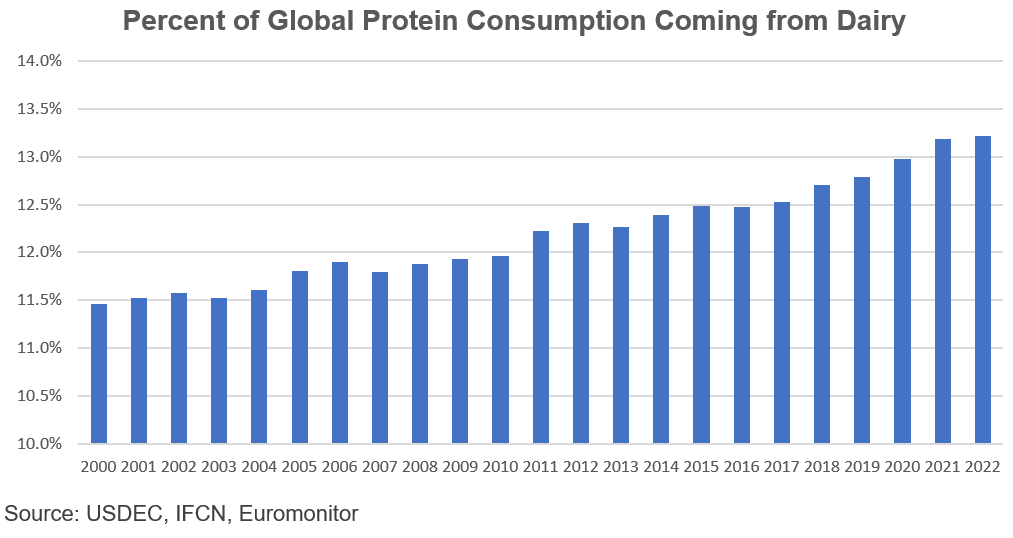NMPF President and CEO Jim Mulhern announced Tuesday he will retire from his position at the end of this year, concluding a decade of service leading the organization and capping a 45-year career in U.S. agricultural and dairy policy. Gregg Doud, a globally recognized agricultural leader and former Chief Agricultural Negotiator for the U.S. Office of the Trade Representative, was named his replacement by NMPF’s Board of Directors later that day.
“Directing the policy efforts of the nation’s dairy farmers and their cooperatives has been the highlight of my professional career,” said Mulhern, who was asked to lead the organization in 2013 and guided NMPF through two completed farm bills, the .COVID-19 crisis, and an ever-quickening pace of change in an industry that in some ways is unrecognizable from that he entered in 1979, when he began his career working for a Midwest dairy cooperative.
Mulhern leaves NMPF in a commanding position, with the organization spearheading a once-a-generation update of federal milk marketing orders and advancing both a fairer economic and regulatory environment for dairy farmers and a more transparent marketplace for consumers amid the proliferation of plant-based dairy imposters. Through its partnerships with the U.S. Dairy Export Council and others, NMPF has supported policy changes to boost dairy exports, which are reaching records; and through its stewardship of the National Dairy FARM Program, it is enhancing dairy’s leadership agricultural sustainability and animal care.
“Dairy farmers have numerous reasons to be thankful for Jim Mulhern’s leadership at NMPF,” said NMPF Board of Directors Chairman Randy Mooney. “Jim has been a leader, a visionary, and a friend to dairy, and through that, a leader in agriculture. The combination of his depth of knowledge, his energy, and his unflagging passion for dairy producers is impossible to replace, but we all will know that his influence and achievements will resonate in this industry for years to come.”
Doud has served in numerous leadership roles in trade association and government work in his more than 30-year career in agricultural policy and economics, most recently at Aimpoint Research, a global intelligence firm specializing in agriculture and food. As Chief Agricultural Negotiator for the U.S. Office of the Trade Representative, from 2018-2021, he led numerous successful efforts to create a fair, prosperous environment for U.S. agricultural exports, including the U.S.-China “Phase One” agreement and the USMCA negotiations.
Before that role, he served as president of the Commodity Markets Council, a trade association for commodities exchanges and industry counterparts; as senior professional staff on the Senate Agriculture Committee; and as chief economist for the National Cattlemen’s Beef Association, among other roles.
Doud said that as the organization’s next leader, he’s excited to engage on critical issues facing dairy farmers. “From the policy arena to new technologies, there are many great new opportunities for dairy producers at home and internationally,” he said. “It is a tremendous privilege to have the opportunity in these exciting times to lead NMPF, one of Washington’s oldest, most prestigious and well-respected agricultural trade associations.”
Doud was born and raised on a 1,000-acre grain, hog and cattle farm near Mankato, KS. He is a graduate of Kansas State University, where he earned a bachelor’s degree in animal science and a master’s in agricultural economics. He remains actively engaged in production agriculture through partnership in a cow-calf operation and lives with his wife and two children on their horse farm in Lothian, MD.
Doud will begin official work at NMPF in September as its chief operating officer before assuming the role of president and CEO upon Mulhern’s retirement.
“Dairy farmers across the nation are pleased to endorse a true champion of agriculture, someone who both understands the hard work we do and the opportunities and challenges we face both here and abroad,” Mooney said. “NMPF has long been blessed with leadership that’s been able to take its advocacy for dairy to a higher level. We strongly believe that Gregg Doud more than amply provides the expertise, the background, and the passion we will need as we navigate a challenging, but promising, new era.”







